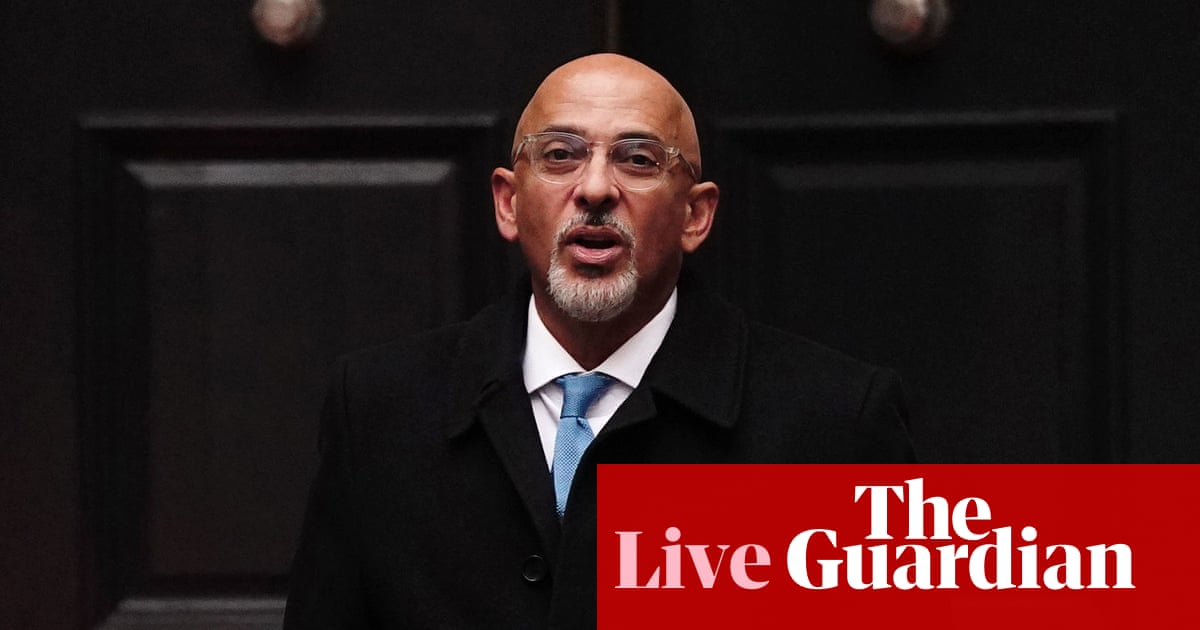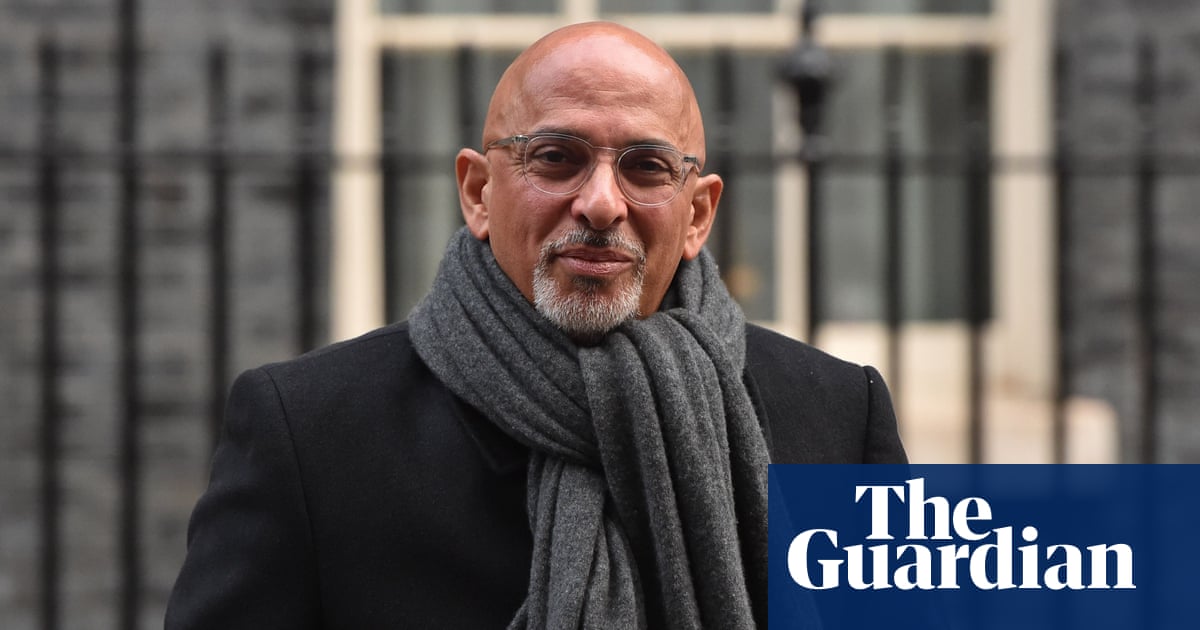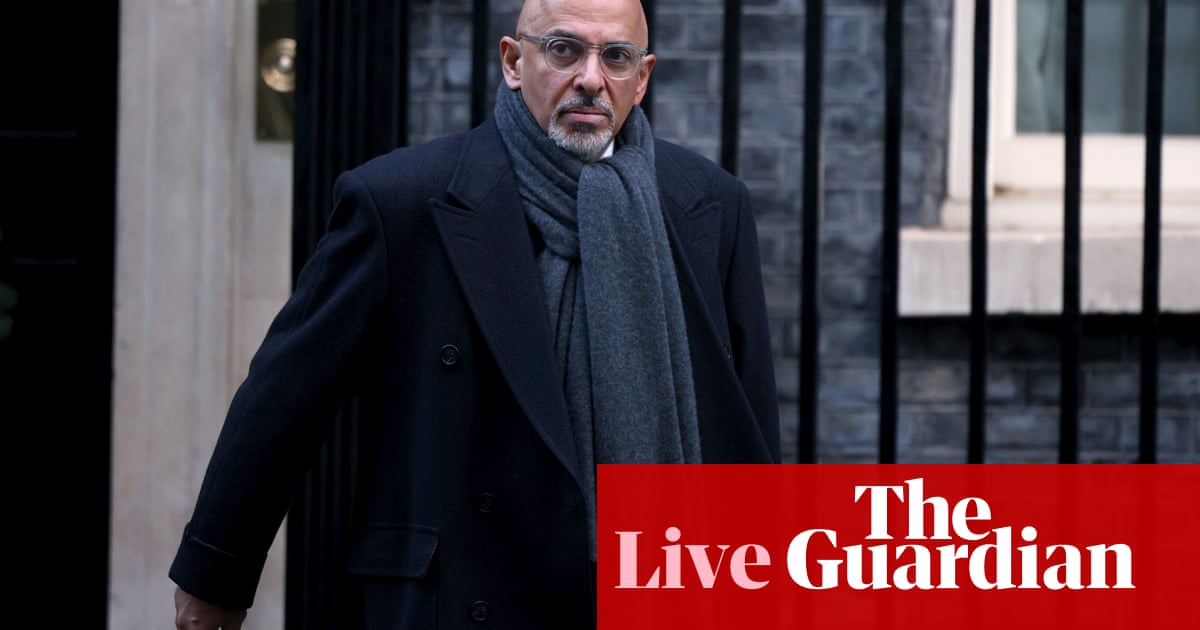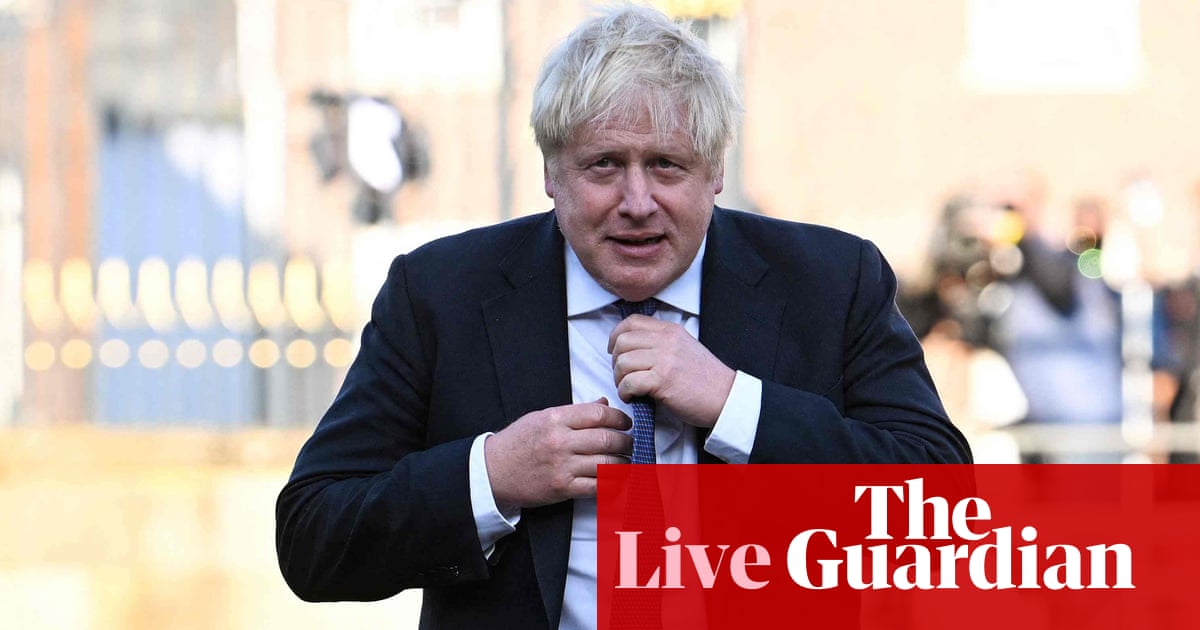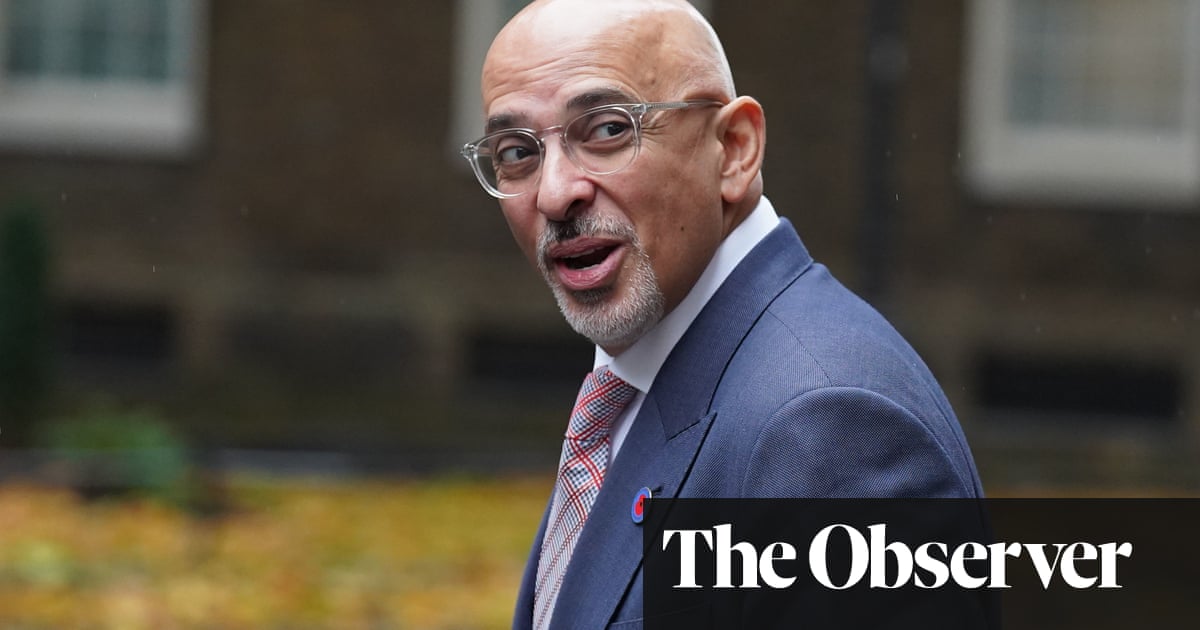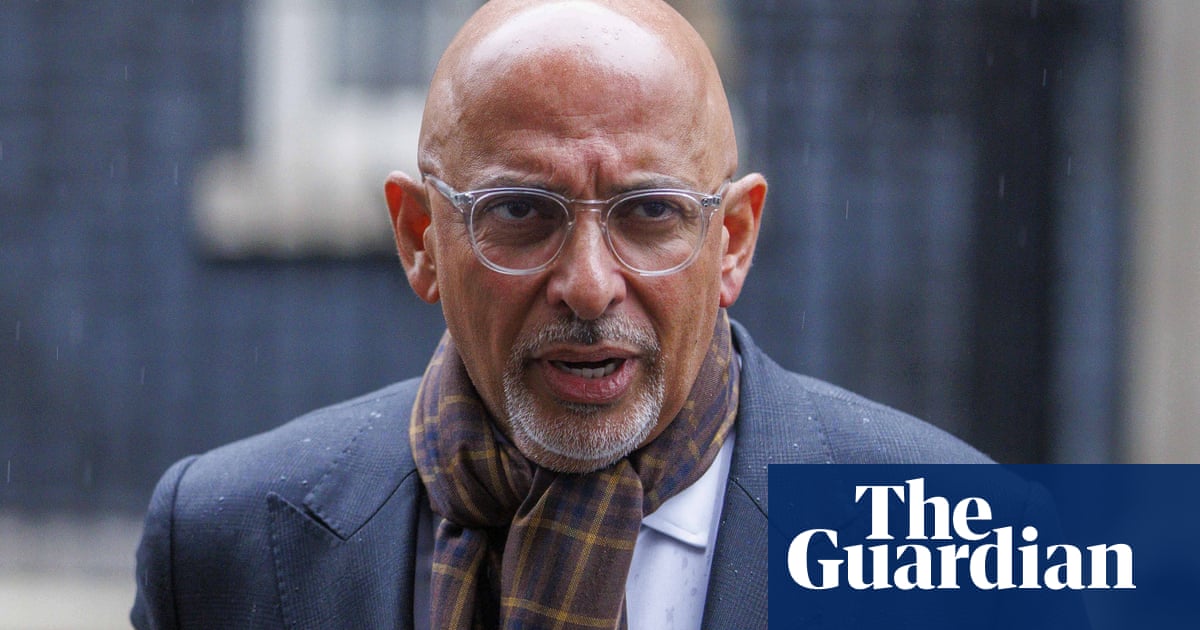
Labour says Zahawi tax revelations add to "stench of sleaze" around Tories and challenges Sunak to say what he knew
Labour is escalating its attack on the government over Nadhim Zahawi’s tax affairs. Anneliese Dodds, the party chair, challenged Rishi Sunak to say what he knew about Zahawi, the Tory chair, reaching a settlement with HM Revenue and Customs. And she said the public were fed up with the “stench of sleaze” surrounding the Tories.
She told Sky News:
If Nadhim Zahawi is not being clear, either to HMRC or to the British public, then he has no place in government.
And of course Rishi Sunak promised, on the steps of No 10, honesty, integrity and accountability. So Sunak has to come clean on what he knew about this affair.
The British public are fed up now of this stench of sleaze around this Conservative government.
Dodds was referring to how Sunak said, in his speech outside No 10 on the day he became prime minister: “This government will have integrity, professionalism and accountability at every level.”
Afternoon summary
Labour has called for Nadhim Zahawi to be sacked as Conservative party chair following the revelation by the Guardian that he agreed to pay a penalty to HMRC as part of a seven-figure settlement over his tax affairs. (See 4.49pm.)
Downing Street has apologised again for Rishi Sunak not wearing a seatbelt while in the back seat of a moving car earlier this week.
The UK has offered qualified support for the creation of a special tribunal capable of holding the Russian civilian and military leadership, including Vladimir Putin, to account for war crimes in Ukraine.
Ambulance workers have announced a series of fresh strikes including one next month that was already predicted to be the biggest day of stoppages in NHS history.
The mystery behind the deaths of thousands of crabs and lobsters along England’s north-east coast has developed a further twist, with experts saying it could be down to a new disease.
Labour calls for Nadhim Zahawi to be sacked after latest tax revelations
Labour is now calling for Nadhim Zahawi to be sacked. In a statement Angela Rayner, the party’s deputy leader, said:
Rishi Sunak promised a government of integrity, professionalism, and accountability but instead he’s propping up a motley crew of scandal-ridden ministers.
Nadhim Zahawi’s story doesn’t add up. The position of the man who was until recently in charge of the UK’s tax system and who this prime minister appointed Conservative party chair is now untenable.
It’s time for Rishi Sunak to put his money where his mouth is and dismiss Nadhim Zahawi from his cabinet.
There is good news this afternoon for people looking for Brexit benefits to celebrate; the shark fins bill has passed the House of Commons, and is now going to the Lords.
The bill, a backbench measures sponsored by Christina Rees (elected as a Labour MP, but currently independent), would ban the import of detached shark fins.
Shark fins are used in shark fin soup and considered a delicacy. The use of fins from sharks that are ethically landed and dead is acceptable, but shark finning – removing the fin from a shark and discarding the rest of the animal back into the sea – is widely condemned and illegal in many countries.
Rees’s bill had cross-party support as it passed its third reading.
Virginia Crosbie (Con) said:
It’s barbaric that we still allow the import and export of detached shark fins. And I fully support this bill, which would not only protect this species but also make a significant statement to the world about the UK’s commitment to seeing an end to the trade in shark fins.
And Rebecca Pow, an environment minister, told MPs:
When we were in the EU it would actually have been extremely difficult to take action on this issue, and any restrictions on the shark fin trade would have needed agreement from all member states.
So the really great news is that we’ve now got much more freedom to introduce stricter measures and we are demonstrating through this bill that we are doing exactly that.
When Boris Johnson was PM he originally intended to include a shark fin import ban as part of wider post-Brexit animal welfare legislation that would also have included a ban on foie gras and controls on fur coats. But this plan was dropped, partly because some of these ideas were deemed “unconservative”.
Katy Balls’ column in the Times today is well worth a read. Echoing some of the points made by the YouGov polling covered earlier (see 9.39am), she argues that levelling up as a political strategy is failing.
Rather than a moment of triumph, the announcement this week of the second round of cash from the levelling-up fund, worth £2.1 billion from a pot of £4.8 billion, has led to Sunak’s worst fracas with his MPs to date. With 550 requests for funding and only 111 winners, Tories who failed in their bids have seen red, with the prime minister accused of prioritising the southeast over the northeast. A minister describes the party as “steaming”. “It’s No 10’s first real misstep on party management,” says a former minister. As MPs received tip-offs on the fate of their bids, there were angry scenes in the Commons, with ministers confronted by MPs who had lost out.
While some of the more divisive allocations — such as funds for cabinet ministers’ seats, including [Rishi] Sunak’s — could have been avoided, much of this is down to [Boris] Johnson. The failure of previous governments to define levelling up means people have bid, in the words of one MP, for “absolutely everything”. Successful bids range from funding for Malvern theatres to new cycling and walking infrastructure in Camden, north London. “I can’t speak for Boris but it’s not what I imagine he meant when he spoke in 2019,” says one MP from that intake.
But the most extraordiary anecdote is what she says about Johnson’s resignation honours list.
Those privy to it say it runs to more than 100 names, including longstanding staff who worked for Johnson throughout the various scandals such as partygate. Theresa May’s and David Cameron’s lists were in the region of 40. It could be a gift to Labour.
Tory freeport supporters welcome report saying it is "exceptionally unlikely" capital dredging caused crab deaths
Ben Houchen, the Conservative mayor of Tees Valley, has warmly welcomed the findings of the government report out today into the cause of the mass die-off of crabs and lobsters of the coast of the north-east of England. He says that what it “absolutely, categorically says” is that it rules out chemical pollution as the cause, including pyridine, and that it also rules out dredging being to blame.
He says that means the Teesside freeport scheme, which he strongly supports, is exonerated.
Simon Clarke, the Middlesbrough South and East Cleveland MP and former levelling-up secretary, another big supporter of the freeport, also says the report shows that the freeport dredging activities were not to blame and that claims to the contrary were “baseless”.
In fact, the report is not quite as categorical as Houchen and Clarke say. The panel, which was chaired by Prof Gideon Henderson, the chief scientific adviser at the Department for Environment, Food and Rural Affairs, with input from Prof Sir Patrick Vallance, the government’s chief scientific adviser, said it was “unable to identify a clear and convincing single cause for the unusual crustacean mortality”.
With reference to capital dredging, to create deeper channels for the freeport, the report says:
The panel therefore considers it exceptionally unlikely that capital dredging on the Tees caused the unusual crustacean mortality seen in this region between these dates [December 2020 and September 2022].
But with reference to general, ongoing dredging, it says:
Considering all available evidence about Teesside dredging the panel considers it very unlikely that release of any toxic chemical, including pyridine, due to maintenance dredging could have caused the deaths.
The report says it uses IPCC likelihood terminology and that “very unlikely” means a probability of less than 10%, while “exceptionally unlikely” means a probability of less than 1%.
Treasury considering plan to give £300m to British Steel to prevent its collapse
The government is considering a plan to funnel nearly a third of a billion pounds towards British Steel to save the struggling metal maker from collapse, PA Media reports. PA says:
A Treasury source told PA Media that chancellor Jeremy Hunt is thinking about handing the company £300m in instalments over the next few years, if it meets certain conditions.
The investment, first reported by Sky News, could help protect jobs at the company, which employs about 4,000 people directly.
It could also save the government an even bigger bill should British Steel collapse, the broadcaster said.
British Steel could not be reached for comment. The Treasury referred queries to the Department for Business, Energy and Industrial Strategy, which did not provide a response.
Labour says Zahawi tax revelations add to "stench of sleaze" around Tories and challenges Sunak to say what he knew
Labour is escalating its attack on the government over Nadhim Zahawi’s tax affairs. Anneliese Dodds, the party chair, challenged Rishi Sunak to say what he knew about Zahawi, the Tory chair, reaching a settlement with HM Revenue and Customs. And she said the public were fed up with the “stench of sleaze” surrounding the Tories.
She told Sky News:
If Nadhim Zahawi is not being clear, either to HMRC or to the British public, then he has no place in government.
And of course Rishi Sunak promised, on the steps of No 10, honesty, integrity and accountability. So Sunak has to come clean on what he knew about this affair.
The British public are fed up now of this stench of sleaze around this Conservative government.
Dodds was referring to how Sunak said, in his speech outside No 10 on the day he became prime minister: “This government will have integrity, professionalism and accountability at every level.”
Labour writes to HMRC asking for clarification of Zahawi"s tax arrangements
Angela Rayner, Labour’s deputy leader, says she has written to HM Revenue and Customs asking for details of the settlement it agreed with Nadhim Zahawi.
She posted this on Twitter this morning.
As the Telegraph reports, Rayner said:
It is manifestly in the public interest for HMRC to explain the nature of this payment and whether the man who just months ago was in charge of the nation’s finances and HMRC itself has admitted fault or incurred financial penalties as part of his settlement.
Ordinary British taxpayers would incur financial penalties if they had displayed a lack of reasonable care that deprived the public purse of significant revenue, and urgent clarity is needed in this case if the growing suspicion of double standards or preferential treatment is to be avoided.
Rayner followed up with this tweet, after we published Anna Isaac’s story saying the settlement included a penalty.
At Davos yesterday Keir Starmer said that a Labour government would be opposed to new investment or the opening of new oil or gas fields in the North Sea. Taking part in a panel discussion, he said:
What we’ve said about oil and gas is: there does need to be a transition.
Obviously, it will play its part during that transition, but not new investment, not new fields up in the North Sea, because we need to go towards net-zero, we need to ensure that renewable energy is where we go next.
His comment has been criticised by the Aberdeen and Grampian Chamber of Commerce which said that Starmer and his shadow ministers should visit Aberdeen to get a better understanding of the industry. Ryan Crighton, policy manager at the chamber, said:
[Starmer’s] support for renewables is welcome, but like the SNP last week, the position set out by Sir Keir suggests a fundamental misunderstanding of the energy transition, and the requirement for oil and gas to both bridge and fund it.
The energy transition is going to take 25 years or more and there is quite clearly a sustained period of time where oil and gas will remain a crucial part of our energy mix.
But Greenpeace UK welcomed what Starmer said. Ami McCarthy, a Greenpeace political campaigner, said:
Over the last year, as both the climate impacts and the profiteering of the gas giants have become unignorable, public support for climate action has risen. The most important climate action any country can take is to leave oil and gas behind by boosting home insulation and transitioning to renewables as quickly as possible. Labour’s latest announcement shows they understand this.
Going into the next election, it’s becoming increasingly clear that if any party wants to get ahead, now is the time to set out their vision for delivering the green economy of the future that the UK desperately needs.
Any UK party still putting their trust in oil and gas lobbyists rather than scientists is going to look naive at best, and very isolated in a world economy racing towards net zero.
(In my opening post I said Starmer was due to take part in another panel event at Davos today. That was based on an error in a schedule. Sorry.)
The UK is to join international allies in considering plans for a new tribunal to deal with alleged war crimes committed by Russian forces in Ukraine, James Cleverly, the foreign secretary, has said.
The international criminal court is already investigating alleged war crimes committed in the conflict but it does not have jurisdiction over the “crime of aggression”.
Ukraine wants to ensure the “crime of aggression” – the decision to go to war, taken by political leaders without UN justification – is investigated, and it has proposed a “hybrid” tribunal to address this – a specialist court within Ukraine’s legal system, but incorporating international elements.
The Foreign Office says Britain will work with other countries invited by Ukraine to consider how this proposal could be implemented.
In a statement, Cleverly said:
The atrocities we’ve witnessed in Ukraine are diabolical – thousands of soldiers and civilians killed, and millions more displaced, forced to flee for their lives in the most horrific circumstances. These atrocities must not go unpunished.
That’s why the UK has accepted Ukraine’s invitation to join this coalition, bringing our legal expertise to the table to explore options to ensure Russia’s leaders are held to account fully for their actions.
Tariq Ahmad, a Foreign Office minister, said the government would “reflect” on proposals Peter Hain made this morning to turn Northern Ireland from an EU “rule taker” to a “rule maker” post-Brexit. (See 12.24pm.)
Speaking at the end of the debate in the House of Lords where Lord Hain made his proposal, Lord Ahmad said:
The government has long held that the protocol is leading to a democratic deficit where the EU law applies in Northern Ireland but with little meaningful consultation on that EU law.
Hain suggested Sinn Féin, DUP and other party representatives should be given powers already given to Norway to scrutinise and achieve amendments in EU laws that will affect their country.
Ahmad said representatives of the Northern Ireland parties already attended meetings of the UK-EU joint consultative working group which discusses EU law coming down the tracks once a month but “there are always things to improve”.
Freeport dredging on Teesside "very unlikely" to be cause of mass crab die-off, report says
Thérèse Coffey, the environment secretary, has said that a new inquiry into the deaths of thousands of crabs and lobsters along the north-east coast had found it was “very unlikely” to be linked to the dredging of the River Tees.
In a written ministerial statement, she said the “independent expert assessment of unusual crustacean mortality in the north-east of England in 2021 and 2022” concluded that a novel pathogen was to blame.
The inquiry was set up in response to claims that the mass die-off was caused by the dredging releasing a toxic chemical called pyridine, which was used in industry on Teesside and was found in high levels in the dead crabs.
But Coffey said in her statement:
The independent panel concluded that pyridine or another toxic pollutant as the cause was very unlikely, as was any link to dredging for the freeport.
A novel pathogen is considered by the independent panel to be the most likely cause of mortality because it could explain the key observations, including mortality, over a sustained period and along over 40 miles of coastline, the unusual twitching of dying crabs and the deaths being predominantly crabs rather than other species.
The dredging has intensified as part of the work to create the Teesside freeport, and a finding that pyridine was to blame would have had serious repurcussions not just for the Teesside freeport, but potentially for others too.
Nadhim Zahawi ‘agreed on penalty’ to settle tax bill worth millions
The Conservative party chair, Nadhim Zahawi, agreed to pay a penalty to HMRC as part of a seven-figure settlement over his tax affairs, my colleague Anna Isaac reports. Her full story is here.




